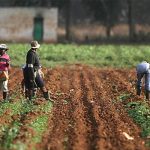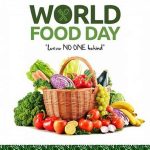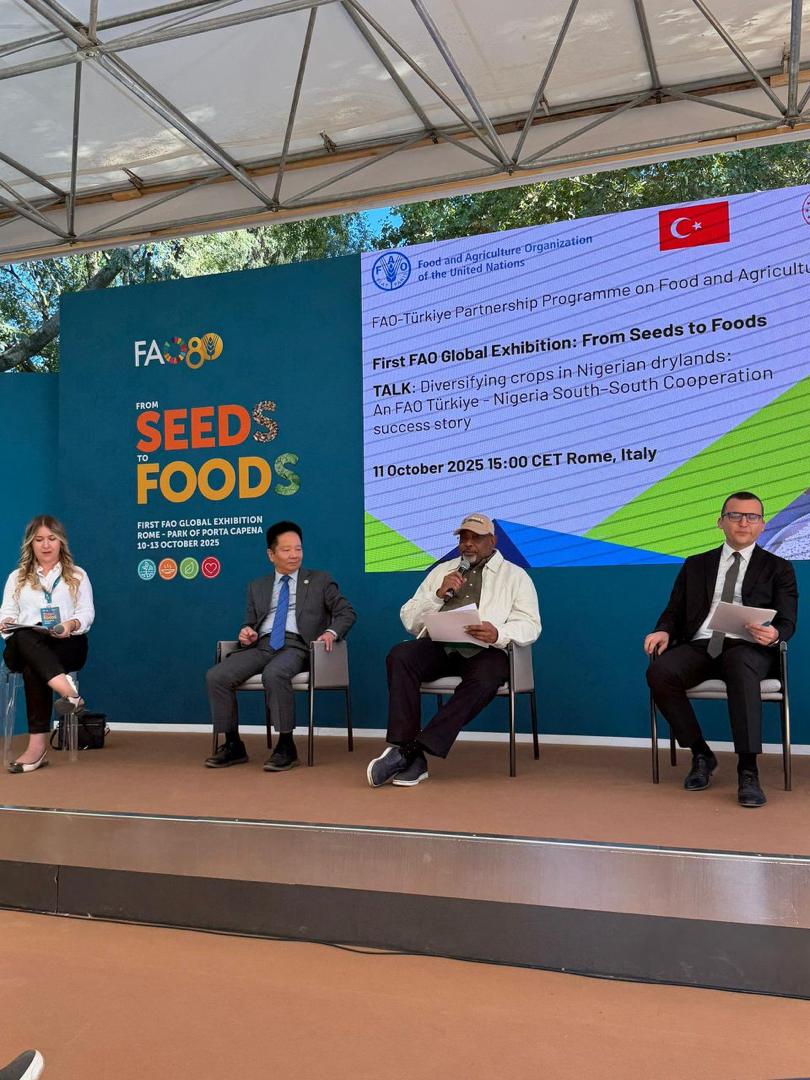Cocoa producing countries like Nigeria, Ivory Coast and Ghana will need to brace up. This is because that money spinning crop, which occupies a prime place on the list of growers of the GDP, is under threat. The threat is that cocoa may soon lose the appeal which made companies in Western nations compete to buy it to produce chocolate among others. The threat issues from a breakthrough in the laboratory, which may soon make cocoa unnecessary for the production of chocolate. It is the discovery of lab-grown Cocoa.
That is the initiative of Food Brewer, a new generation multinational company that is based in Switzerland. The company announced that the lab-grown cocoa will be unveiled as soon as it’s been developed in the laboratory of a Swiss start-up.
It will not stop at that. The founders of Food Brewer is planning to revolutionise cocoa and coffee production. As far as they are concerned, they see a future in which food, sustainability and tradition coexist. There is a question though, and that has to do with the ethical, cultural and environmental implications of novel foods. There also may be the need to address the implication for the health of consumers.
Talking about the taste of the lab-grown chocolate, the company said, “It is good – surprisingly good. At first, it resists between the teeth, just by the right amount, before breaking into many pieces. It then releases its classic pleasant aromas on the tongue, in a balanced harmony of sweetness and bitterness”.
Still talking about the taste, the company said, “Finally, once partially melted, the chocolate leaves a symphony of flavours in the mouth that evoke faraway places.”
So, how did they get the raw material for the laboratory wonder? Here is what Noemi Weiss, a biotechnologist and project leader of the company has to say, “We harvest cells from a cocoa bean, these are placed on a nutrient gel, where they start to regenerate and form a callus, a kind of repair tissue. After two weeks, thanks to microscopic analysis and the help of artificial intelligence, we choose the right cells. These are then put in a bioreactor with a nutrient solution rich in sugars, vitamins, minerals and other substances.” There goes the artificial intelligence again. It is fast dominating the life of everyone, taking the jobs of most people in almost every sector.
Weiss again: “The next step is drying, which enables us to obtain cocoa powder. Once roasted, the powder is ready to be made into chocolate.”
What was briskly described as a success story took two years of research work by personnel at the Food Brewer. Interestingly, the company is a startup, which was founded in 2021. The company which is based in Horgen on the shores of Lake Zurich.
The breakthrough created a lot of excitement in the company. For instance, Christian Schaub, CEO and co-founder said “I was immediately fascinated by the idea of cell culture, This production has the potential to revolutionise cocoa and coffee cultivation, making it more environmentally sustainable and fairer for people.”
Food Brewer is confident that its product will be well received. The CEO said, “Many producers have contacted us recently. They are interested in this technology, which has the advantage of not being influenced by weather conditions or the presence of pests – factors that can compromise crop quality and quantity.”

It is, therefore, already gearing up to meet demand from potential customers. Last February, the company did a maiden fundraising, realising over CHF5 million ($5.6 million). Those who partnered with it includes Max Felchlin AG, one of Switzerland’s leading chocolate manufacturers, which, according to Food Brewer, sees this technology as an opportunity to diversify and ensure the stability of supplies.
“By 2026, together with our partners, we want to bring cell-based chocolate onto the market,” says Food Brewer’s co-founders. “In the first half of next year, we shall submit our application to the US Food and Drug Administration. It should be approved in 2026.”
That should be enough signal for cocoa producers, particularly in West Africa. Food Brewer is targeting a production of tens of thousands of tonnes by 2035.
It is not surprising that Food Brewer’s initiative is receiving attention. Prior to the breakthrough, cocoa production has been having challenges in countries like Ghana, Ivory Coast, Ecuador and Nigeria. The challenges range from the depletion of land, reduction in the number of farmers due to old age, climate change, indiscriminate use of pesticides, heavy metals and loss of biodiversity. These challenges have hampered the rise in production to meet the demands from the companies.
Yet, the demand for the bye products of cocoa, like chocolate, will continue to increase as the population of the world is projected to hit 10 billion by 2050. Manufacturing companies may, therefore, be undaunted by the length of time it takes to grant approval to novel food. They probably would be looking at it from the point of view of the companies getting a solution to the existing challenges of procuring cocoa beans from different areas of the world.
The implication for cocoa producing countries will be that there would be a glot of the product, leading to waste and eventual discouragement of farmers. So, what is the way out for producers of cocoa? Dr. Olusegun Awolumate, chairman of Ondo State Cocoa Council has this advice for cocoa producing countries in the continent: “Africans should promote consumption of an economically reasonable portion of what they are producing (value addition) instead of the current competition on production output of raw cocoa beans.”
He said that though Africa produces 80 percent of cocoa in the world, it consumed only about 3.28 percent. Dr. Awolumate wants the government to include cocoa products in the list of items for the school feeding programme. This, he believes, will not only serve as off taking for the products but also start the interest of young people in the products. The effect is that even if initiatives like the lab-grown cocoa would affect the sale of cocoa beans outside the countries of producers, local production of bye products will be fed by the producers.












